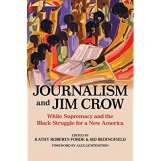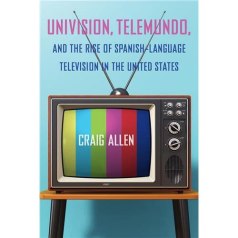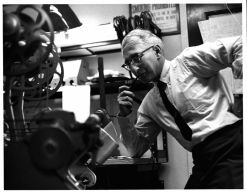Journalism History will adapt an open format policy for initial journal submissions starting Jan. 1, 2022.
The decision comes after months of discussion among the journal staff followed by a survey of journal reviewers that found 80% of respondents supported or were neutral toward the policy change.
Under the policy, scholars may submit an article submission in any standard academic reference style for initial review. If the article is accepted or receives a revise and resubmit, the author must change the citation style to the journal’s current Chicago formatting for publication.
Therefore, the citation style and appearance of the final journal product itself will remain the same.
The revised policy was proposed for multiple reasons. No. 1, we must increase the number of submissions the journal receives. To be a competitive journal, we must decrease the 50% acceptance rate of the past few years. We must grow our brand beyond our finite number of members to keep journalism history growing.
As one survey respondent wrote:
“Honestly, there aren’t many journals that use Chicago anymore, particularly in journalism fields. Many younger academics are being encouraged to publish outside of history journals, in particular, to show that their work has a broader impact. If I were still a Ph.D. student or a pre-tenure faculty member, I’d go with a journal that allowed me to submit in the citation style that fit with the broadest number of journals because I would write a first draft in that style. (APA, usually, I’ve found.)”
Another wrote:
“It seems to me that we will get more submissions if scholars are allowed to submit work using the citation format with which they are most comfortable. More than likely, many of the articles we receive are revisions of conference papers, which of course use a wide variety of citation formats. With adoption of open format submissions, the scholar can concentrate on substantive areas of revising his/her conference paper before submitting to the journal. Once accepted, a paper can be easily revised to fit our journal’s style requirements.”
Related to this, another reason that we have revised the policy is due to other major journalism journals already moving to open formats in recent years to be more flexible. Therefore, we now better align with trends in academic journals. We hope that more people will consider us if they do not have to change to our very specific style when they can more easily submit elsewhere.
As another survey respondent wrote:
“Many scholars write their papers in styles other than Chicago, but that does not make their historical research any less valid. Journalism History should be open to considering all quality historical research regardless of style. The journal may be missing out on excellent articles by restricting style to Chicago because some scholars may decline to submit if they have to do the work to convert to Chicago style before they even know if they’ve been accepted.”
Another wrote:
“I think we should put as few roadblocks as possible in the way of people submitting to the journal, and requiring them to submit a manuscript in a specific format seems to me to be an unnecessary roadblock. If the article is accepted, it can be put into a consistent format.”
Furthermore, a brief diversity analysis of the journal conducted by Erika Pribanic-Smith and Teri Finneman found significant diversity gaps in the past 10 years in journal topics, including a lack of scholarship related to media and disability history, LGBTQ media history, and media history related to race and ethnicity.
Gerry Lanosga is leading a team with Candi Carter Olson, Lillie Fears and Lexie Little to do a more comprehensive analysis, but it’s already clear there are significant gaps that must be addressed.
Therefore, we hope providing an easier process for submissions will make us more attractive to researchers who may not have considered us before in order to broaden the scope of our content.
One survey respondent wrote:
“I suspect that this would be an enticement for researchers from outside of traditional history programs to consider submitting to the journal. Media students, for example, who have not had a crossover with a history program are far more likely to be working in MLA or APA.”
Another respondent wrote:
“I think this is a move toward inclusivity, which I support. I do want us to continue publishing in CMOS and hold up the integrity of that citation style. However, let’s reduce what is likely a barrier from our colleagues in other divisions and who publish in other arenas.”
To be sure, we received a number of comments in the surveys expressing concerns about the lack of notes in non-Chicago citation styles, the different writing styles and different readability. We understand these concerns and are willing to try this as a pilot program that we evaluate along the way.
One thing that we do know is doing nothing is not an option. If we want journalism history to not only survive but thrive, we simply have to do more to encourage a broader group of scholars to engage in our field.
– Teri Finneman, Publications Chair











